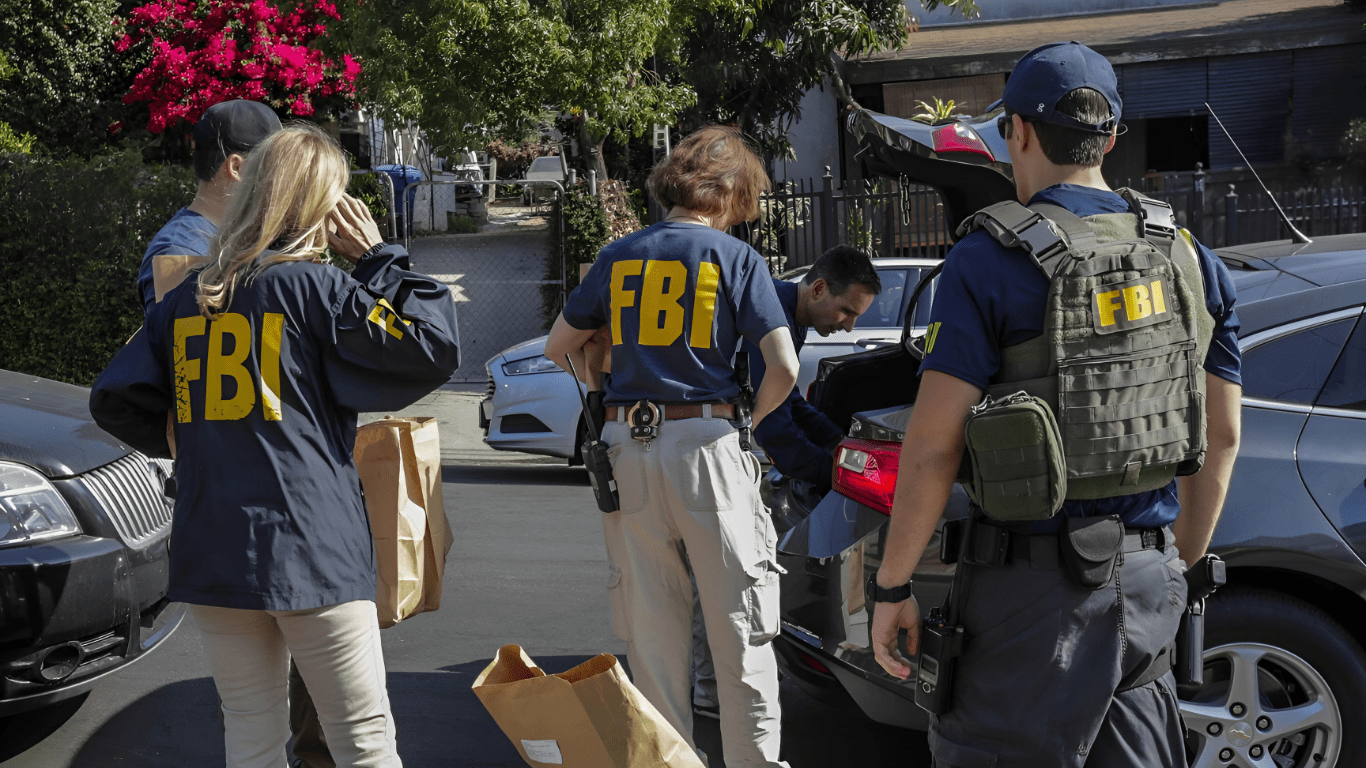The FBI is a key U.S. federal law enforcement agency investigating high-profile crimes, including counterterrorism and cybercrime. FBI raids lead the way—planned, sometimes violent operations where agents execute search or arrest warrants to gather evidence. While vital for law enforcement, these raids carry significant legal and social repercussions that we cannot ignore.
What Is an FBI Raid?
An FBI raid occurs when federal agents enter any property to search for and seize evidence. Searches are typically part of raiding operations, requiring agents to close off areas and obtain warrants.
FBI raids are always pretty tactically precise. The briefing provides agents with a thorough overview to ensure a safe and efficient operation. The FBI trains agents to make deadly-force decisions and choose tactics for situations involving potential armed suspects or traps. Raids can happen at any time, requiring many agents to secure the scene and ensure safety and stealth.
Anything that Leads to an FBI Raid
When the FBI raids you, that is no small consignment. You can follow these steps to do raid –Step 1->
Investigative: The FBI starts by compiling a thorough investigation. Investigators collect evidence for weeks, months or even years through surveillance and informants with organized crime agents resorting to wire-tapping. Investigators present this evidence to bring charges against the suspects.
Agents must demonstrate probable cause to a judge for a search warrant, linking criminal activity to specific locations. The investigators present a written complaint detailing the case to a judge, who issues a search warrant if approved.
Once they obtain a warrant, the FBI carefully plans the raid, evaluating potential threats and the presence of weapons. Before entering, they brief agents on operation details and their roles, such as managing exits or addressing suspects.
The team operates the raid with fast, tactical precision. Agents could more easily break down a door, clear the space and declare their presence. Typically, agents first arrest the suspects, then search the property and seize any evidence they find, including documents and weapons.
After a raid, investigators analyze the collected data, which may lead to further legal actions, including prosecutions or additional arrests. If the evidence proves insufficient, they may not bring charges, but the investigation can continue.
Famous FBI Raids
Over the years, some high-profile raids have shaped public perception of the nation’s political landscape and the FBI itself.
Waco Siege (1993) — One of the most infamous FBI raids, agents attempted to arrest Branch Davidian leader David Koresh. This led to a shootout, resulting in four dead agents and several Branch Davidians. A 51-day standoff ensued, which ended in a disastrous fire that claimed the lives of 76 people. Waco raid, FBI mishandling【Photo via TikTok】
Elian Gonzalez Raid (2000): FBI agents forcibly entered Elian Gonzalez’s relative’s home to retrieve him amid a contentious custody battle. Authorities discovered Gonzalez off the Florida coast after his mother and her boyfriend drowned while trying to escape Cuba for a new life in America. The FBI stormed the house where he lived at gunpoint, forcibly removing him from his aunt and uncle. They then returned him to his father in Cuba after nearly a year of legal battles. The use of force during this event sparked widespread attention and condemnation.
Executive: High-Profile FBI Raids – Roger Stone Arrest & Operation Varsity Blues (2019)
EXECUTIVE: Roger Stone Arrest (2019) — FBI agents arrested longtime adviser to former President Donald Trump in high-profile raid broadly covered across… Stone was charged with seven counts, including obstruction of a federal investigation related to Russian interference in the 2016 election, witness tampering and lying to Congress. Reporters were at Stone’s Florida home when the early morning raid occurred, leading some to question whether it was necessary and politically motivated.
Operation Varsity Blues (2019)—The FBI raids many in 2019 as a part of Operation Varsity Blues, an extensive probe into a college admissions bribery scheme The scam was laid bare in March when federal prosecutors revealed how rich families paid up to $500,000 (£386,300) for secure a place at prestigious US universities by cheating their way through the system. Among the people arrested were celebrities such as actress Lori Loughlin and business captains, a high-profile example of how white-collar crime is part of the FBI workd.
FBI Raids: The Legal and Political Fallout
The raids — especially if they are high-profile — can create serious legal and political fallout, particularly for the FBI. A raid can result in immediate arrests, but it also much more: critical evidence required to prosecute suspects and make a case via convictions. But the effects of a raid extend beyond what takes place in court; it can reshape public opinion, influence political debate and even kick-start sweeping investigations.
It included the politically expensive FBI raid on Roger Stone’s house, from when Special Counsel Robert Mueller was investigating Russian interference during 2016 presidential campaign. While Trump supporters blasted the FBI for what they saw as heavy-handed tactics, others who follow in events suggest it showed a rule of law was followed.
The same is absolutely true with the Waco siege, that made Americans feel differently about federal law enforcement and gave rise to anti-government movements as well internal investigations within the FBI in order to ensure this type of tragedy does not happen again. FBI raids, and the consequences of these actions while they may be years after a fact have enormous cascading results including impacting individuals as well as organizations evenly much later.
Controversy and Criticism
While the FBI has a legal right to raid and arrest, these raids are anything but uncontroversial. Some critics allege that raids are overly forceful, unreasonably brutal or not adequately grounded in evidence. The use of military tactics including SWAT teams and armored vehicles, sometimes deemed excessive in particular circumstances.
The American Civil Liberties Union and other advocacy groups have warned against the possibility of raids that violated Fourth Amendment protections from unreasonable searches and seizures. Though search warrants are required for FBI raids, what constitutes “probable cause” is generally controversial and can often be politically charged.
Furthermore, the way in which FBI raids are publicly perceived is due a lot to how they’re reported. Images of heavily armed agents knocking down doors in high-profile cases can influence public perception of guilt. The revelations also call into question the fairness of raids and weather media hype can effect ongoing investigations.
Conclusion
The FBI continues to see raiding as an indispensable option for responding promptly to major crimes. The FBI cannot effectively perform its duties against organized crime, public corruption, or terror plots without well-coordinated raids. That power, however necessary, is a double-edged sword, requiring the FBI to balance intelligence needs with civil liberties. Though many raids have been praised for capturing dangerous criminals, others straddle the fine line between law enforcement and overreach.







